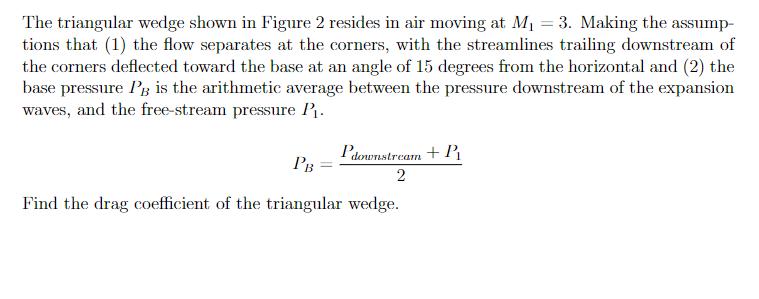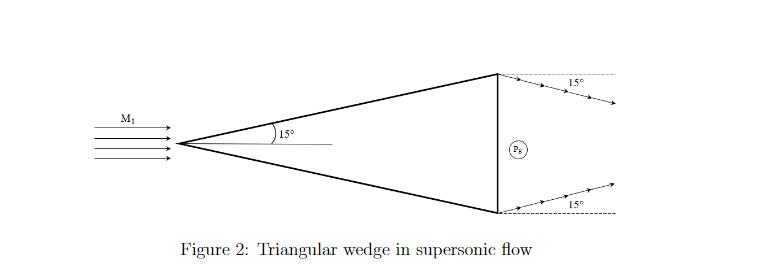Question
The triangular wedge shown in Figure 2 resides in air moving at M = 3. Making the assump- tions that (1) the flow separates


The triangular wedge shown in Figure 2 resides in air moving at M = 3. Making the assump- tions that (1) the flow separates at the corners, with the streamlines trailing downstream of the corners deflected toward the base at an angle of 15 degrees from the horizontal and (2) the base pressure PB is the arithmetic average between the pressure downstream of the expansion waves, and the free-stream pressure P. Pdownstream + P 2 PB Find the drag coefficient of the triangular wedge. M 15 (Pg Figure 2: Triangular wedge in supersonic flow 15 15
Step by Step Solution
There are 3 Steps involved in it
Step: 1
Solutions Step 1 The drag coefficient of the triangular wedge is 1 This can be found by analyzing th...
Get Instant Access to Expert-Tailored Solutions
See step-by-step solutions with expert insights and AI powered tools for academic success
Step: 2

Step: 3

Ace Your Homework with AI
Get the answers you need in no time with our AI-driven, step-by-step assistance
Get StartedRecommended Textbook for
Income Tax Fundamentals 2013
Authors: Gerald E. Whittenburg, Martha Altus Buller, Steven L Gill
31st Edition
1111972516, 978-1285586618, 1285586611, 978-1285613109, 978-1111972516
Students also viewed these Mechanical Engineering questions
Question
Answered: 1 week ago
Question
Answered: 1 week ago
Question
Answered: 1 week ago
Question
Answered: 1 week ago
Question
Answered: 1 week ago
Question
Answered: 1 week ago
Question
Answered: 1 week ago
Question
Answered: 1 week ago
Question
Answered: 1 week ago
Question
Answered: 1 week ago
Question
Answered: 1 week ago
Question
Answered: 1 week ago
Question
Answered: 1 week ago
Question
Answered: 1 week ago
Question
Answered: 1 week ago
Question
Answered: 1 week ago
Question
Answered: 1 week ago
Question
Answered: 1 week ago
Question
Answered: 1 week ago
Question
Answered: 1 week ago
Question
Answered: 1 week ago
View Answer in SolutionInn App



